Want to supercharge your productivity? Learn to say no!
A number of years ago at Salesforce, my team was tasked by Marketing to drive registration to a high-profile webinar. We had secured a great speaker and everyone was expected to pitch in to make it a huge success. One of my top sales reps refused to help. It was one of my proudest moments as a leader!
Why? Because I was always clear with my team about the importance of focus.
My rep clearly noted that the core audience for the webinar wasn’t aligned with her territory and that she’d be focusing her energy (i.e. going BIG) on executing a higher impact customer event in her region.
She understood that while saying no can be hard, it’s 100% necessary if the goal is to focus your limited bandwidth on the things that really matter.
Try this. Take a look at your work calendar for this week. Now ask yourself, on a scale of one to ten, ten being “my schedule is lean and mean! No useless meetings, optional attendance, or fluff. 100% focus!” and one being “OMG! How did this happen? When am I going to get any actual work done?!?” Where do you sit? If you said anything below seven (or manage team members you suspect fall below this line), continue reading!
As Basecamp founder, Jason Freid asserted in his Bestselling book Rework, work doesn’t happen at work. Work is optimized for disruption rather than focus. In fact, according to my favorite cerebral reads The One Thing, we get interrupted every 11 minutes and spend about one-third of our day recovering from those interruptions. So how can we start to minimize disruption and maximize productivity in our workday? Be mindful of your default response.
For example, at work when someone asks you to do something for them (e.g. attend a meeting, review some content, generate a report, etc), what’s your default response? Yes or No? If you’re like most people, you tend to answer yes more often than no…and whether you realize it or not, that’s a huge problem!
Before you know it, your critical work gets pushed aside in favor of unfocused meetings, activities of questionable value, and tasks that don’t align with your core goals. And what’s worse, we fall victim to what Essentialism author, Greg McKeown, calls the paradox of success. That is:
- we get good at one thing and develop a reputation of excellence for it
- we become known as a “go-to” person and are presented with a broader scope of options and opportunities to use our talents
- demands on our time increase which leads to diffused efforts and being spread thin
- our success undermines the clarity and focus that lead us here initially.
So why is yes typically our default response? Quite simply, science reveals that saying yes makes us feel good. It satisfies our need to feel emotionally close to others, engaging altruistic behavior enhances our mood, and across the globe, the desire to help is seen as a highly desirable character trait. And yes, despite all benefits of yes, at work it robs of our productivity and ultimately prevents us from delivering the results we’re after. The solution, learn how to say (and create an acceptable culture around) no!
When Steve Jobs returned to Apple in 1997, they sold 350 products. Two years later, they sold ten. That’s 340 no’s…and the rest is history. But if you’re struggling to say no as often as you feel you should, here are some tips to help you along your way.
- Shift the focus to what you’re going big on: when it comes to handling objections, one of the most powerful tactics is simply giving a reason for your position. This applies when saying no as well. Rather than focus on what you’re saying no to, focus on the trade-off you’ve made or what you’ve decided to say yes to (or go BIG on) instead. For example, in the case I outlined at the beginning of this post, my top rep decided that driving registration to the webinar was a distraction since the target attendees didn’t align with her region or ideal customer profile. Instead, she chose to go big on traveling to meet her top customers on-site to ensure their transactions closed by month-end.
- Don’t make it personal: oftentimes we find it hard to say no to certain people because of our relationship with them. That’s why when you say no to someone, don’t think of it as saying no to them, but rather the request. Separating the two can help provide the necessary resolve.
- Say no “but”: while you may not be able to accommodate the entire request, you may still be able to soften the no by satisfying some of it, deferring it, or adding value in another way. For example, instead of saying “No, I won’t attend the meeting you invited me to,” say “I can’t make that meeting, but I’d be happy to provide you with my data so you can use it in your analysis.” Or “I won’t be able to get you that report today, but my time will free up on Thursday after my big customer meeting and I’d be happy to get it to you then.”
- Ask for help prioritizing: sometimes we get inundated with requests for our time and attention and our bandwidth gets stretched thin. We know we need to say no to something, but we’re not sure what. In those instances, a helpful approach is to make the decision someone else’s. For example, if your boss asks you for an analysis of the latest sales figures, but you’re completely maxed out, you can say, “I’d love to help but I’m currently juggling four other competing tasks. Which one should I deprioritize to make room for this?”
- Make it part of your culture: one of the biggest reasons we find it hard to say no is that it’s socially or culturally frowned upon at work. Rather than seeing no as a negative, celebrate it! Make it totally acceptable for your colleagues and team members to say no if they truly believe their time and attention is best served elsewhere. Behavioral research shows that when the right foundational expectations are set, it becomes much easier for people to act in the manner you want them to. So as long as it’s done in an empathetic and respectful way, where the trade-offs are clear and reasonable, you should be extremely proud to build a culture with a strong bias towards focus.
With endless deliverables, tight deadlines, and no shortage of distractions, the modern work environment is designed for disruption rather than productivity. Staying focused on the things that matter requires us to be mindful of our tendency to take on too much and the discipline to say no when that focus is in jeopardy. I hope these tips help you along your journey!
We promise never to send you junk or share your email! Just helpful sales insights.














Leave a Reply
Want to join the discussion?Feel free to contribute!